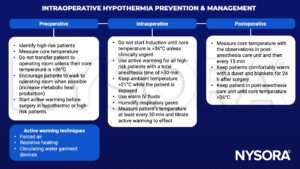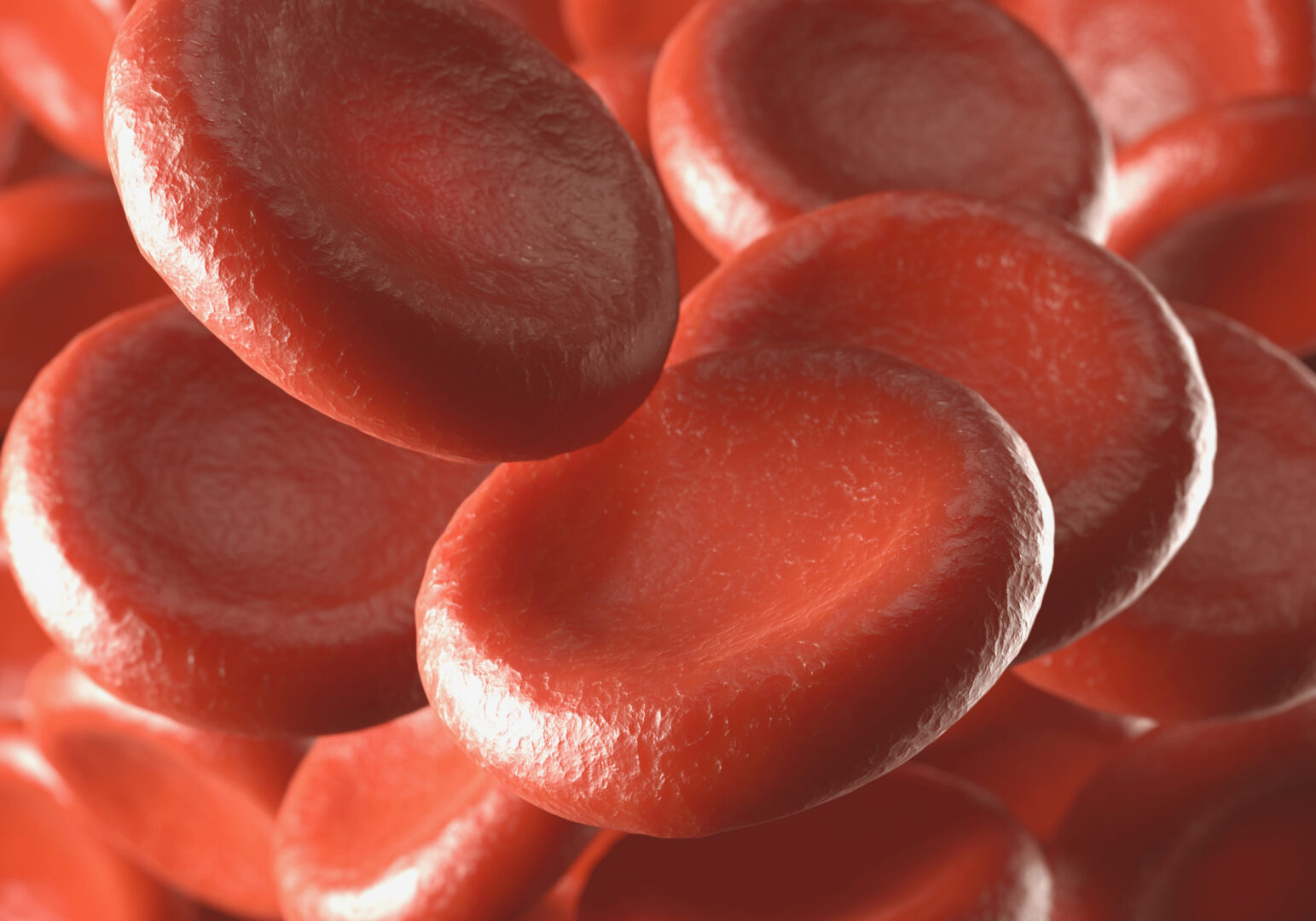Learning objectives
- Describe the causes, risk factors, and consequences of perioperative hypothermia
- Prevent and manage perioperative hypothermia
Definition & mechanisms
- Perioperative hypothermia is defined as a core body temperature <36.0°C
- Common consequence of anesthesia
- Inability of the body to respond effectively to the multiple causes of heat loss during surgery and anesthesia
Causes
3 phases:
- Redistribution: Vasodilatation leads to warm blood reaching the peripheries and cool blood from the peripheries entering the core circulation, causing a rapid decline in temperature
- Heat loss exceeds heat produced from metabolism as the metabolic rate is reduced by 15-40% during general anesthesia, causing a linear decline in temperature
Sources of heat loss:
-
- Radiation
- Convection
- Evaporation
- Conduction
3. Plateau phase: Heat loss is balanced by heat produced metabolically, mostly due to maximal vasoconstriction
Risk factors
- ASA grade 2-5 (higher grade, greater risk)
- Preoperative temperature <36.0°C
- Combined general and regional anesthesia
- Major or intermediate surgery
- At risk of cardiovascular complications
- Low BMI
- Diabetic neuropathy
- Paraplegia
- Severe hypothyroidism
Consequences
- Increased risk of surgical site infection
- Decrease in drug metabolism
- Increased bleeding and transfusion requirements
- Increased risk of cardiac events
- Shivering
- Delayed discharge from post-anesthesia care unit
Prevention & management

Suggested reading
- Rauch S, Miller C, Bräuer A, Wallner B, Bock M, Paal P. Perioperative Hypothermia-A Narrative Review. Int J Environ Res Public Health. 2021;18(16):8749. Published 2021 Aug 19.
- Riley C, Andrzejowski J. Inadvertent perioperative hypothermia. BJA Educ. 2018;18(8):227-233.
We would love to hear from you. If you should detect any errors, email us customerservice@nysora.com







